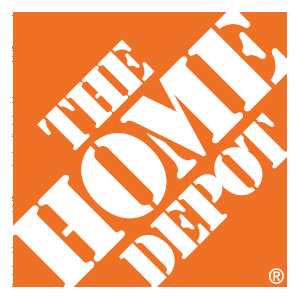Key Findings
- The Home Depot has a safer chemicals policy, known as its Chemical Strategy, that includes a list of restricted chemicals. This company was the first major U.S. home improvement chain to adopt such a policy. The policy restricts key chemicals of high concern (CHCs) such as phthalates and flame retardants in products including flooring, paints, cleaning products, carpets and rugs, fiberglass insulation, and paint removal products.
- The Home Depot has demonstrated substantial leadership, particularly by being the first home improvement chain to ban phthalates in vinyl flooring and per- and polyfluoroalkyl substances (PFAS) in carpets and rugs.
- The company was also among the first home improvement chains to ban methylene chloride and NMP in paint removal products, although some suppliers have moved to regrettable substitutes containing other CHCs. The company has also made progress in reducing two plastics of environmental health concern (PEHCs), polyvinyl chloride (PVC) and expanded polystyrene (EPS), in packaging.
Recommendations for The Home Depot
- The Home Depot should continue to implement its policy by setting public quantifiable goals with clear timelines for reducing and eliminating additional CHCs and expand the policy by phasing out the use of all PFAS, ortho-phthalates, halogenated and other toxic flame retardants, methylene chloride, and NMP that may be present in other key product categories.
- The company should follow up on its ban on paint strippers with methylene chloride and NMP by also restricting regrettable substitutes, particularly those containing GreenScreen Benchmark-1 chemicals. The Home Depot should publicly disclose the alternatives used to replace CHCs or PEHCs after eliminating them.
- The Home Depot should also pilot the Health Product Declaration with suppliers, and become a signatory to the Chemical Footprint Project and pilot it with key private label suppliers.
Grade History
How does The Home Depot compare to its competitors?
Analysis of The Home Depot
Oversight: Established management responsibilities and incentives
Disclosure: Requires suppliers to report use of chemicals in products to retailer
Action: Reduced or eliminated chemicals of high concern (CHCs) or plastics of environmental health concern (PEHCs) within the last three years
Safer Alternatives: Evaluates safer alternatives, avoids regrettable substitutes
Transparency: Demonstrates a commitment to transparency and public disclosure
Third-party Standards: Promotes credible third-party standards for safer products
Extra Credit:
Joint Announcement: Public commitment demonstrated through joint announcement
Continuous Improvement: Shows continuous improvement by steadily expanding safer chemicals policy
Collaboration: Actively participates in collaborative process to promote safer chemicals
Impact Investment: Investing financial resources into independent research into safer alternatives and/or green chemistry solutions


